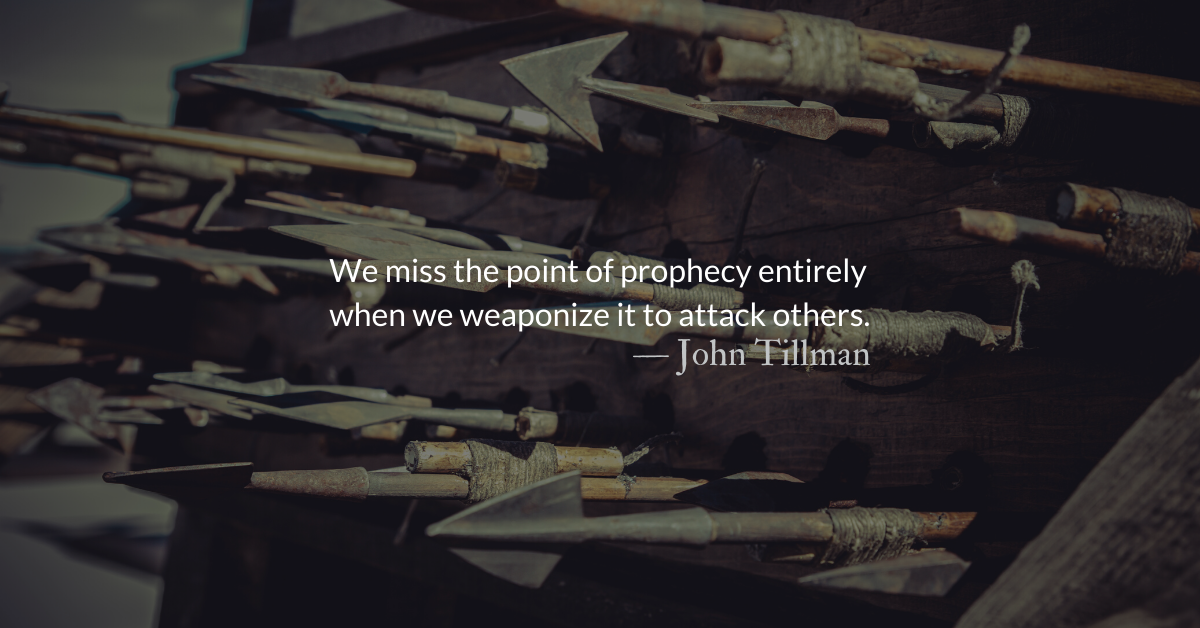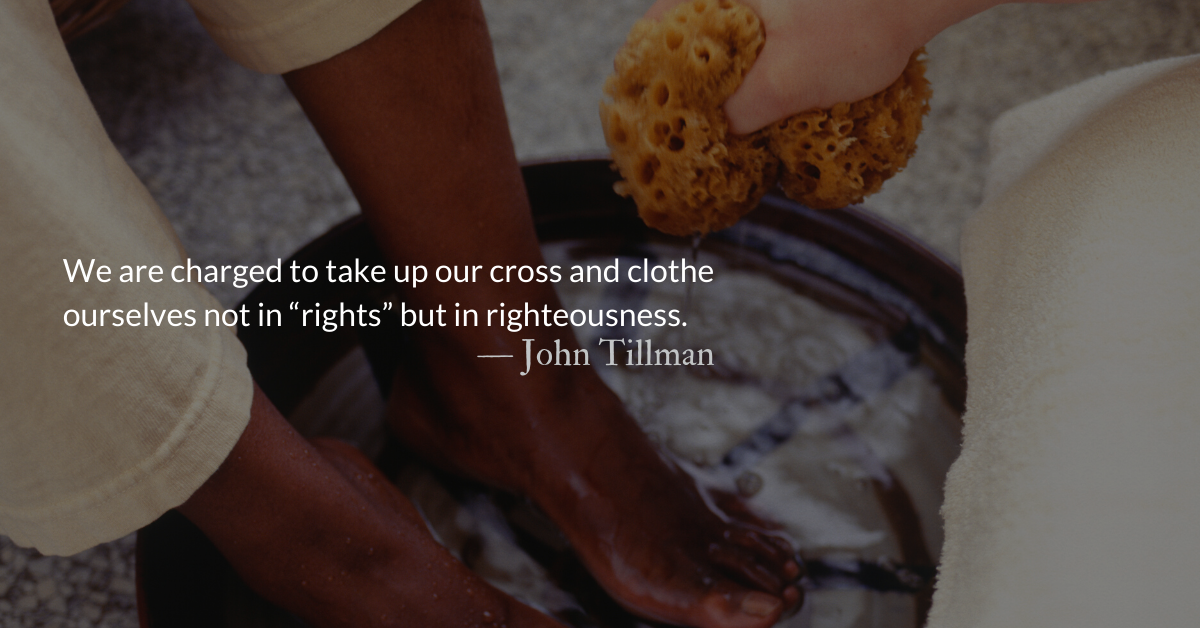Scripture Focus: Jude 5
Though you already know all this, I want to remind you that the Lord at one time delivered his people out of Egypt, but later destroyed those who did not believe.
From John: We have referred to this post from 2018 frequently enough on our journey through the prophets this year that it seems fitting to repeat it here. It is never a good idea to dodge the convicting message of a prophet by imagining oneself as the prophet rather than the target of prophecy. May we be more prone to repentance than deflection of blame.
Reflection: How to Read Prophetic Judgment
By John Tillman
There are many passages in the prophecies of the Old and New Testaments that are meant to comfort us. But the more typical function of prophecy is to cause us discomfort.
Examples of both comforting and afflicting passages occur in our readings today—both in Jude and in Isaiah.
Comforting:
Yet the Lord longs to be gracious to you;
therefore he will rise up to show you compassion.
For the Lord is a God of justice.
Blessed are all who wait for him! — Isaiah 30.18
But you, dear friends, by building yourselves up in your most holy faith and praying in the Holy Spirit, keep yourselves in God’s love as you wait for the mercy of our Lord Jesus Christ to bring you to eternal life. — Jude 20-21
Afflicting:
“Because you have rejected this message,
relied on oppression
and depended on deceit,
this sin will become for you
like a high wall, cracked and bulging,
that collapses suddenly, in an instant. — Isaiah 30.12-13
Yet these people slander whatever they do not understand, and the very things they do understand by instinct—as irrational animals do—will destroy them. Woe to them! They have taken the way of Cain; they have rushed for profit into Balaam’s error; they have been destroyed in Korah’s rebellion. — Jude 10-11
When we read prophecy in the Old or New Testament, we often try to identify ourselves with one of the groups mentioned. Are we the prophet? Are we the Israelites? Are we Balaam? Are we the Gentile nations?
This can be an interesting intellectual exercise but is often a waste of time. One reason is it is unhelpful is that when we do this we take it easy on ourselves.
We tend to identify ourselves as the Israelites when prophets are saying comforting things to Israel, but when the prophet is condemning Israel, we imagine ourselves as the righteous prophet and our evil government or evil culture as the target.
In the end, it doesn’t matter that much if we understand who is analogous to the nation of Israel or who is analogous to the nation of Babylon. It matters far more to understand why God is angry, what he requires of us, and what he wants to do through us if we return to him.
Prophecy can spur us on to love and good deeds, to mark a clear path of repentance and clarify the consequences of disobedience. But we blunt the point of prophecy’s spurs when we avoid the probability that we are the ones a prophecy is about. We miss the point of prophecy entirely when we weaponize it to attack others.
The best way to read prophecy is to imagine yourself not as the speaker, but as the spoken to. Judgment-filled prophecy is one case in scripture where it is safer to assume it’s about you than others. Once you do this, you can take whatever steps of grace-filled repentance the Holy Spirit directs you to.
Following this approach, we will be far more uncomfortable reading prophecy, but our discomfort will lead to a more richly flourishing faith.
Divine Hours Prayer: The Refrain for the Morning Lessons
Everyone will stand in awe and declare God’s deeds, they will recognize his works. — Psalm 64.9
– Divine Hours prayers from The Divine Hours: Prayers for Springtime by Phyllis Tickle
Today’s Readings
Isaiah 30 (Listen – 5:52)
Jude (Listen – 4:12)
This Weekend’s Readings
Isaiah 31 (Listen – 1:49) Revelation 1 (Listen – 3:43)
Isaiah 32 (Listen – 2:46) Revelation 2 (Listen – 4:59)
Read more about Different Kind of Exile
Living as outcasts in society has nearly always brought healing to the church through suffering.
Read more about Default Settings for Scripture
Scripture is not written as much to us, about us, or about the past as it is for us, about Jesus, and about our future.











